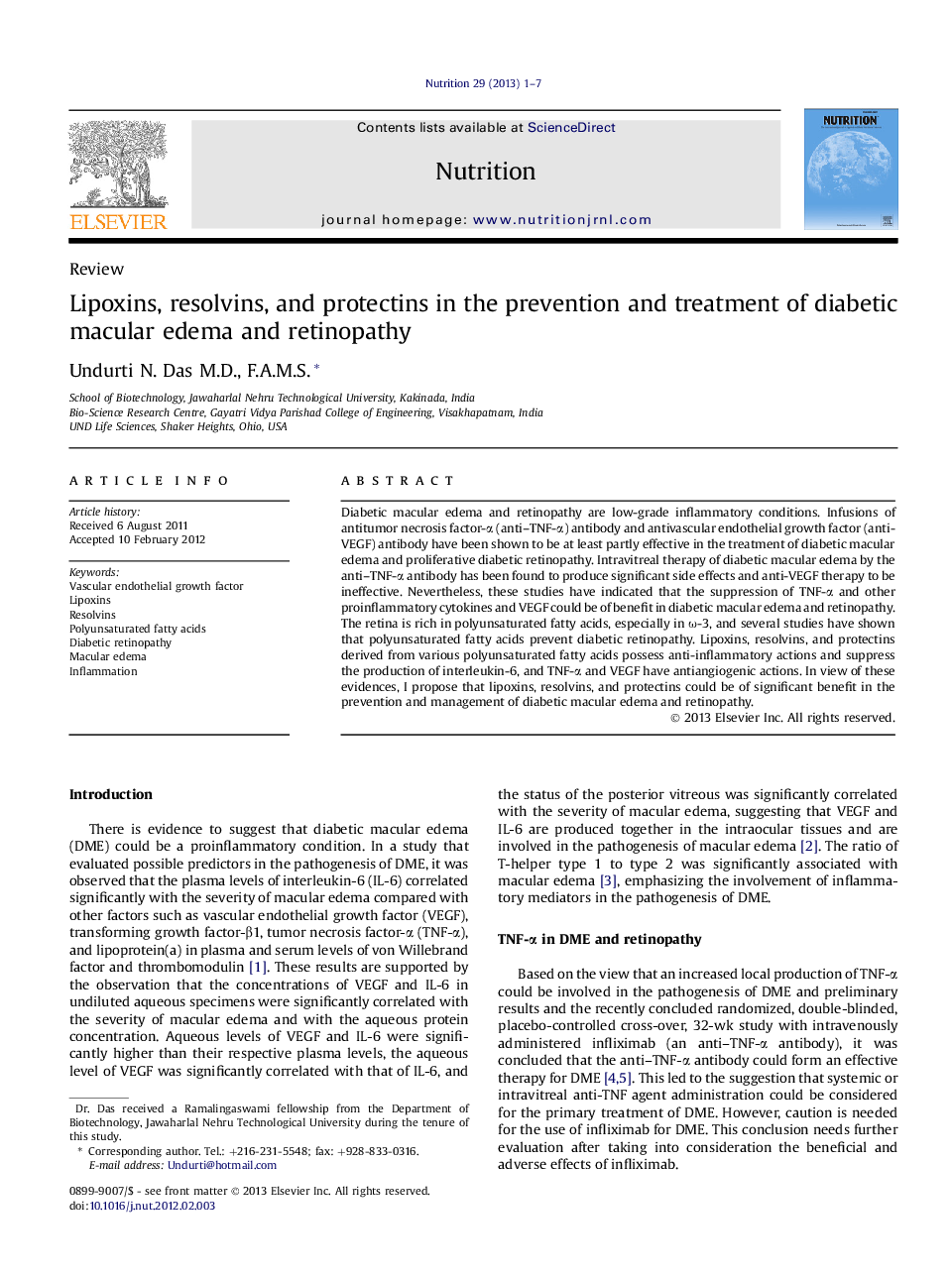| Article ID | Journal | Published Year | Pages | File Type |
|---|---|---|---|---|
| 6090054 | Nutrition | 2013 | 7 Pages |
Diabetic macular edema and retinopathy are low-grade inflammatory conditions. Infusions of antitumor necrosis factor-α (anti-TNF-α) antibody and antivascular endothelial growth factor (anti-VEGF) antibody have been shown to be at least partly effective in the treatment of diabetic macular edema and proliferative diabetic retinopathy. Intravitreal therapy of diabetic macular edema by the anti-TNF-α antibody has been found to produce significant side effects and anti-VEGF therapy to be ineffective. Nevertheless, these studies have indicated that the suppression of TNF-α and other proinflammatory cytokines and VEGF could be of benefit in diabetic macular edema and retinopathy. The retina is rich in polyunsaturated fatty acids, especially in Ï-3, and several studies have shown that polyunsaturated fatty acids prevent diabetic retinopathy. Lipoxins, resolvins, and protectins derived from various polyunsaturated fatty acids possess anti-inflammatory actions and suppress the production of interleukin-6, and TNF-α and VEGF have antiangiogenic actions. In view of these evidences, I propose that lipoxins, resolvins, and protectins could be of significant benefit in the prevention and management of diabetic macular edema and retinopathy.
